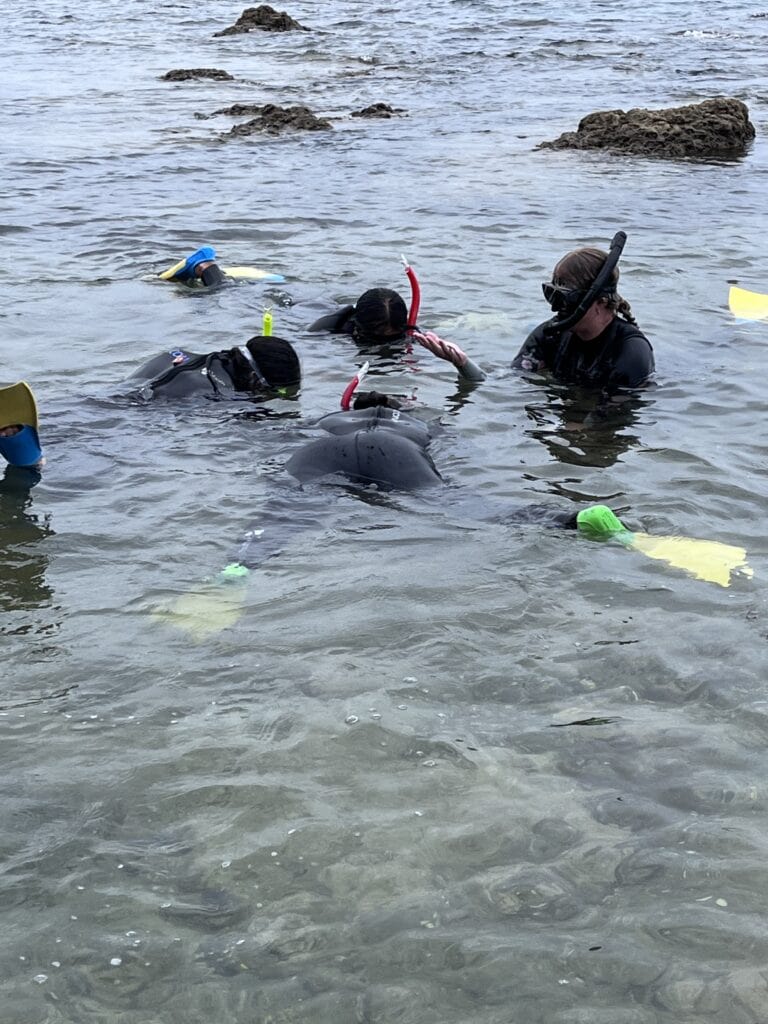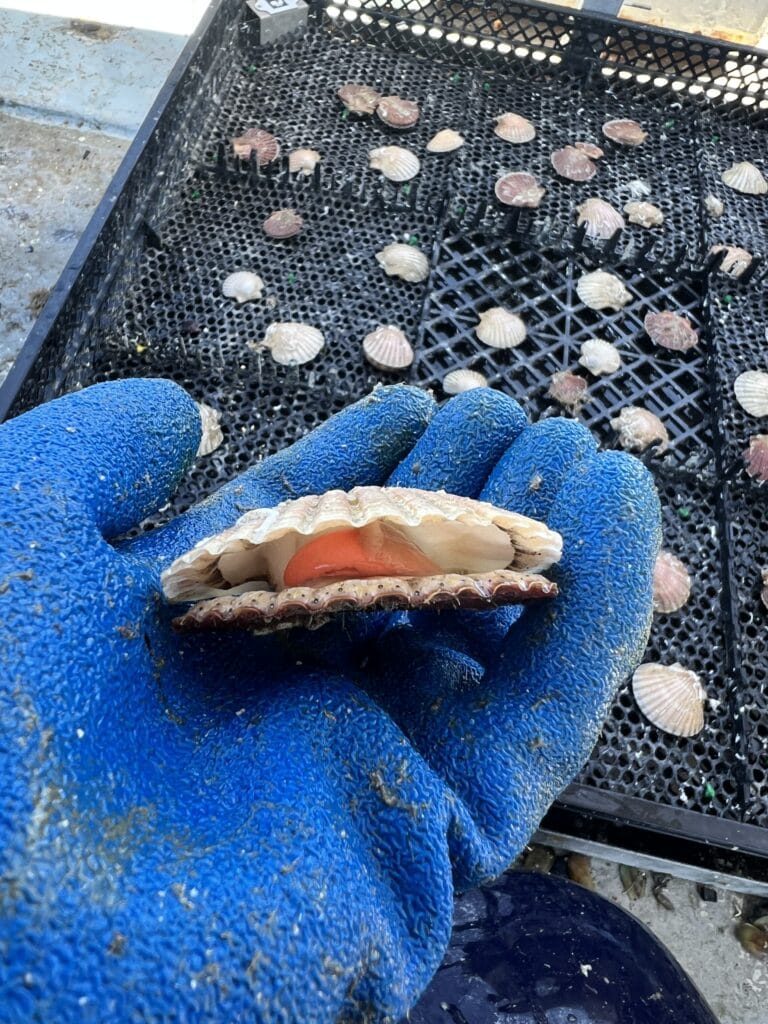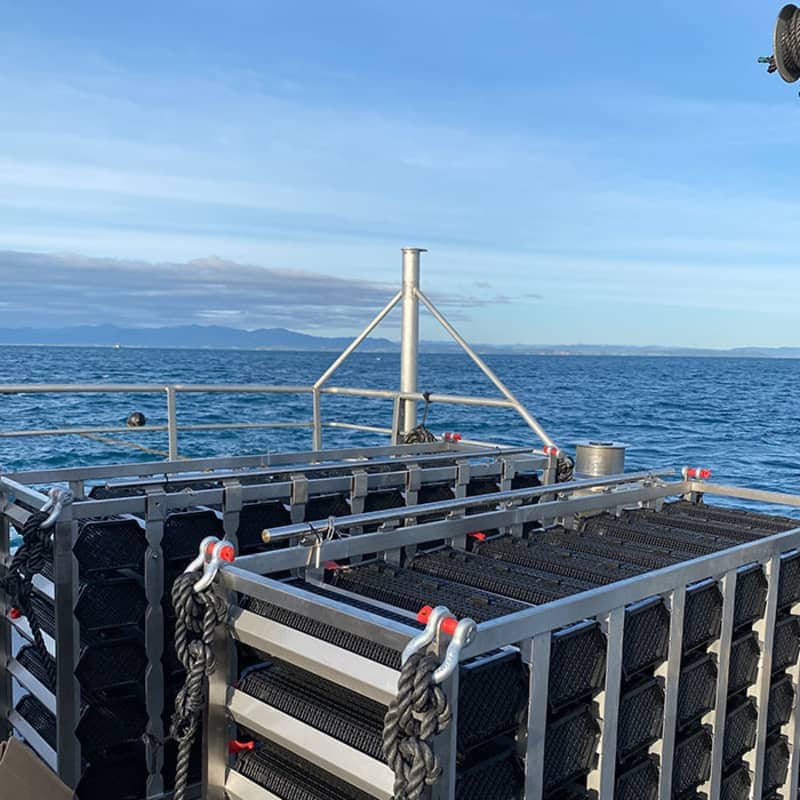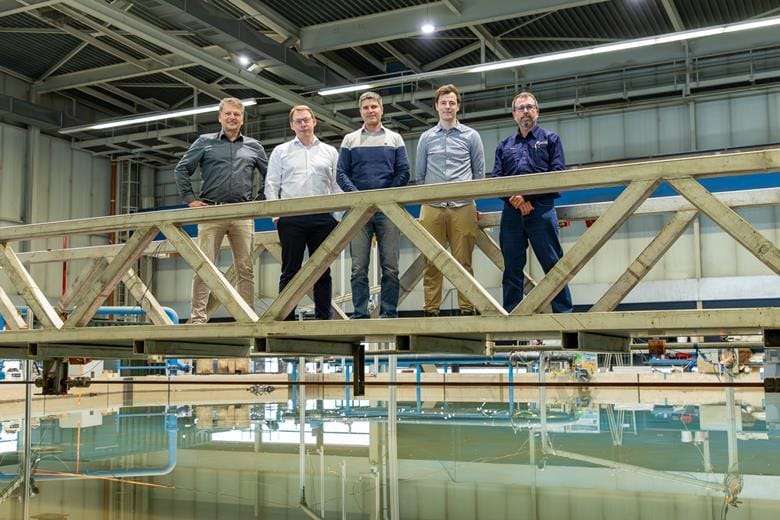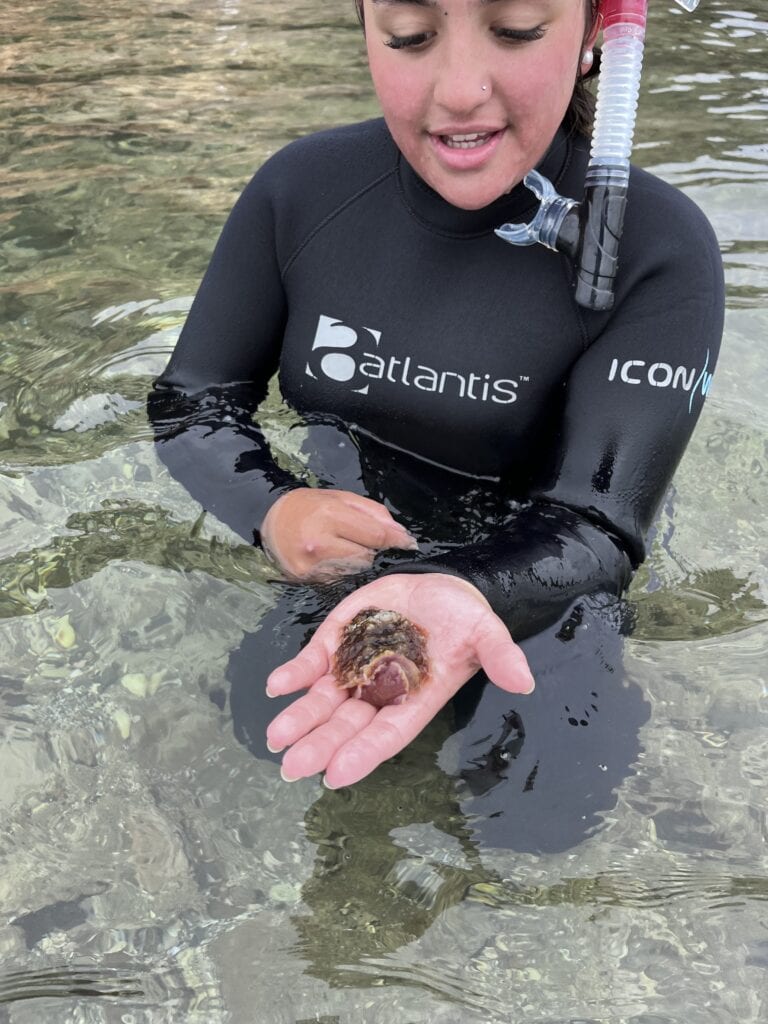
Aquaculture education and training is on track to be a key part of Ōpōtiki College’s programme in 2024 after the success of the first Cawthron-organized Ahumoana Whakahihiko (Inspiring Aquaculture) programme last December.
During the first of its kind offering, held during the School’s Wananga (Activities) week, 14 Year 10 students were exposed, over four days and 14 separate activities, to the aquaculture industry’s key skills and knowledge including, shellfish analysis, husbandry, processing and food preparation alongside diving, boat navigation and marine pollution mitigation. The programme’s evaluation showed that almost all found the experience ‘awesome’ and they ‘learned a lot’.
Ahumoana Whakahihiko is part of Cawthron’s six-year MBIE-funded Nga Pūnga o te Moana Open Ocean Aquaculture research and development programme. The programme aims to advance the core technologies and systems for growing oysters, scallops, and seaweed in New Zealand’s exposed (offshore) waters. Within the program, Cawthron is working with the Whakatōhea Māori Trust Board to assist with the advancement of their aquaculture strategy.
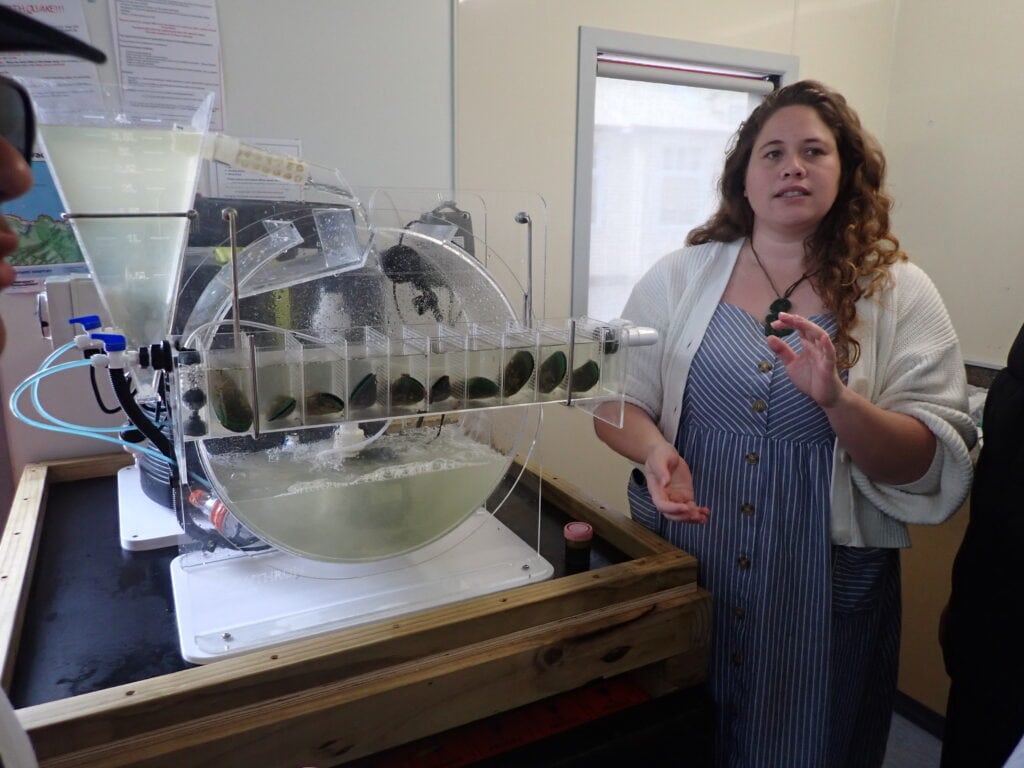
In addition, Ahumoana Whakahihiko not only considers the importance of Mātauranga Māori in aquaculture development but also introduces Ōpōtiki’s rangatahi to the many and diverse skills, knowledge and activities involved in contemporary aquaculture. While Ahumoana Whakahihiko will also run offerings in the Whakatōhea region’s primary schools and transition to work schemes, Ōpōtiki College is taking the lead. Students studying NCEA biology and statistics will use a specially designed recirculating shellfish experimental station built by Cawthron engineers (pictured right) during their studies as well as data collected through the Cawthron programme. The teachers involved are visiting Cawthron in Nelson in late January to discuss their study programmes with the institute’s aquaculture and data scientists.
As well as Cawthron staff and college teachers, the Ahumoana Whakahihiko offering in December drew on a wide range of knowledge and skills from local businesses and organizations. Local dive master Phil van Dusschoten from Whakatane based Diveworks Charters introduced students to diving and supervised the underwater ecology snorkelling trip to Ōpape Beach (pictured).
Ōpotiki Coastguard, Bay of Plenty Harbour Master staff and Ōpotiki waka ama club, Kura ki tai Waka Ama, covered boating safety, navigation, and boating skills during a day at the Ōpotiki wharf and on day three the students where back in the classroom covered mussel biology and aquaculture opportunities with the Cawthron team. In the afternoon, they prepared mussel dishes in the school’s kitchen judged by the chef and school catering manager, Kane Campbell.
On the final day the students visited the Open Ocean Whakatōhea Mussel’s Factory and the Tio Ohiwa oyster farm at Ohiwa Harbour (see photo). While the programme plan included a visit to the Open Ocean Whakatōhea Mussel’s offshore farm with Diveworks Charters, poor weather and strong westerly winds during the week meant that was not possible on that occasion.
This year’s Wananga week aquaculture programme will be offered to new groups of up to 40 Ōpōtiki College students this coming year during week nine of each of the college’s four terms. The first offering will be specially designed for the College’s Maurua, Māori immersion group. In what is believed to be an Aotearoa first, the Ahumoana Whakahihiko programme will be offering in Te Reo Māori.
